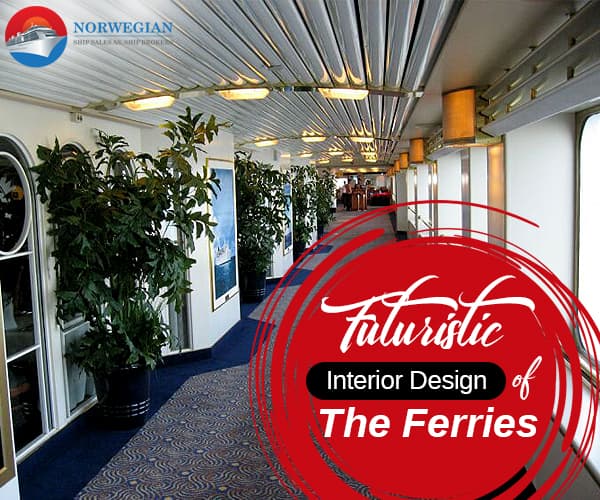One of the biggest challenges of the marine industry lies in its need to constantly upgrade its ship, reduce the environmental impact it has and improves the customer satisfaction. All the while, saving money.
While technological advancement has optimized several aspects of a ferry like reducing the environmental footprint of the ship, optimizing the propeller, reducing the energy consumption or hiring a new type of fuel system. But is it enough? The technical changes made to the ship are definitely important, however, when it comes to improving the efficiency of the ferry, it is the work done on the deck that matters the most. The ultimate goal is to reduce the cost that the industry has been incurring.
The idea of flexible accommodation as proposed by the ferry experts has changed the future dynamics. Given that ships have a lifetime of almost 30 years and the increased numbers for a ferry for sale in the last few years has forced owners to pay attention to accommodation spaces. But what type of changes can be made? How can flexible accommodation increase the sale of ferries? How can on-deck changes make the future of the ferries finer?
A detailed insight into the topic will help solve this enigma.
The Flexible onboard environment
The passengers want season-related experience on the ships. To work on this particular point, and further add to their satisfaction, it is possible to close down certain parts of the ship during the off-season. This will help cut down the crew cost. The interior should be fast and easy, making interior arrangements easier and more flexible. 3D pictures are being incorporated at a large rate in order to change the atmospheric appeal in a very short period of time, without coming in the way of the normal operations of the ship. Most ferries are including multi-dimensional rooms to accommodate different needs for different seasons. Such flexible designs can help owners save a lot of money.
Making the ferries energy efficient
Most of the latest passenger ferries come with energy efficiency systems. Since energy consumption on board is a major cost factor to be considered by the owners, it is important to ensure that the ferries meet the Energy Efficiency Design Index (EEDI) appropriately. Using LEDs on the ships not only adds to the interior decoration but also changes the energy consumption dynamics of the ships. Rather than paying attention to the speed, it is important to put the focus on annual fuel consumption. The chances of saving up to 5% on less travelled routes with fewer passengers, than during peak seasons. With flexible accommodation, the chances of saving money are higher. If the ships are made more energy efficient, saving on fuel, then owners will be able to save up to 3-6% of total money spent per year, which can be further used for the optimization of the ferries. It is a domino effect, where changing one aspect can change the entire ferry system completely.
The future of the ferries can be made better if the right steps are adopted now. It is all in the innovative thinking! Companies that expertise in fast ferries for sale are especially adopting these optimization methods to make the ferries more effective and passenger satisfaction oriented.


